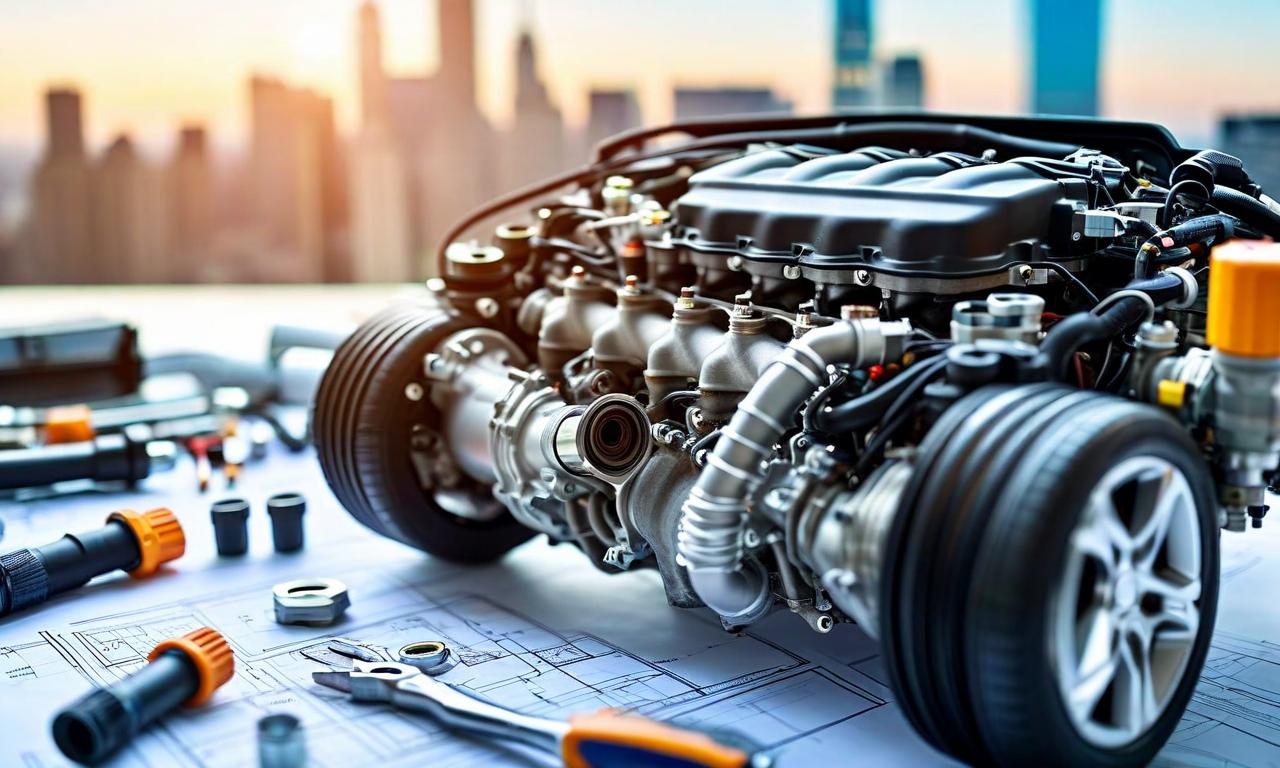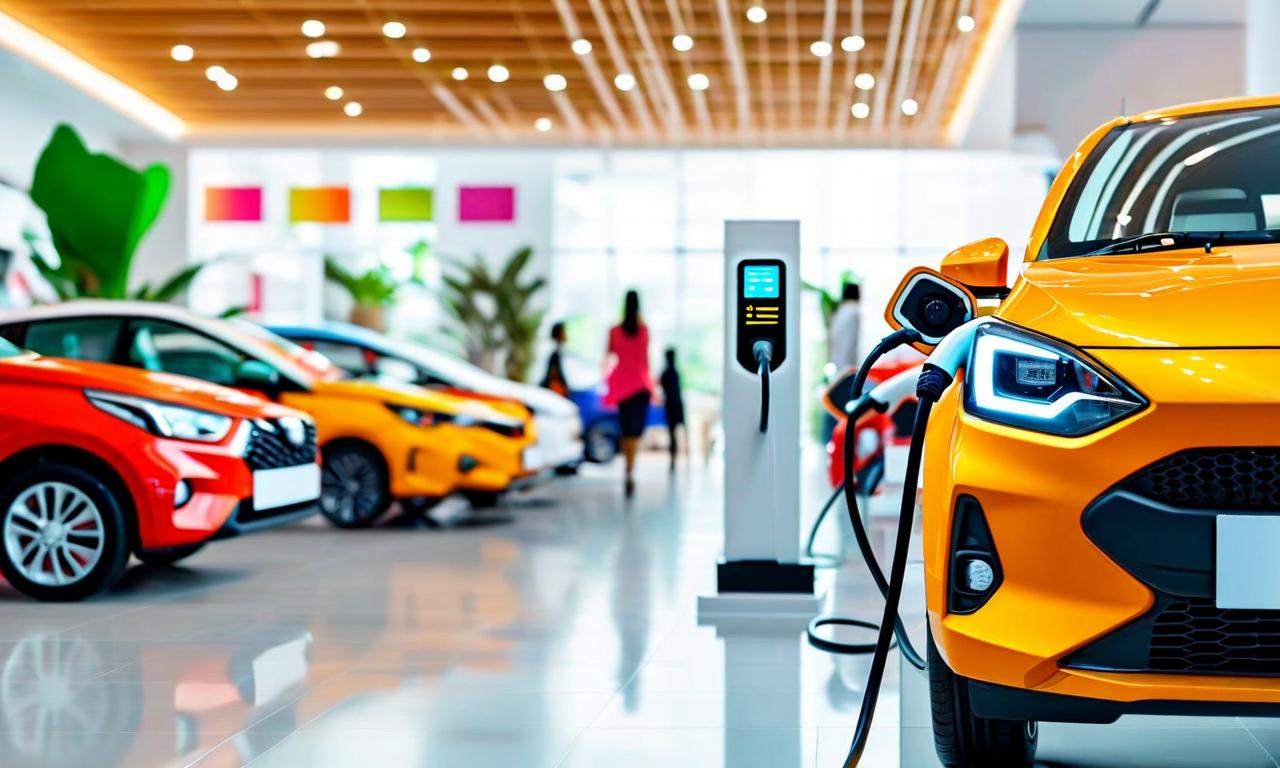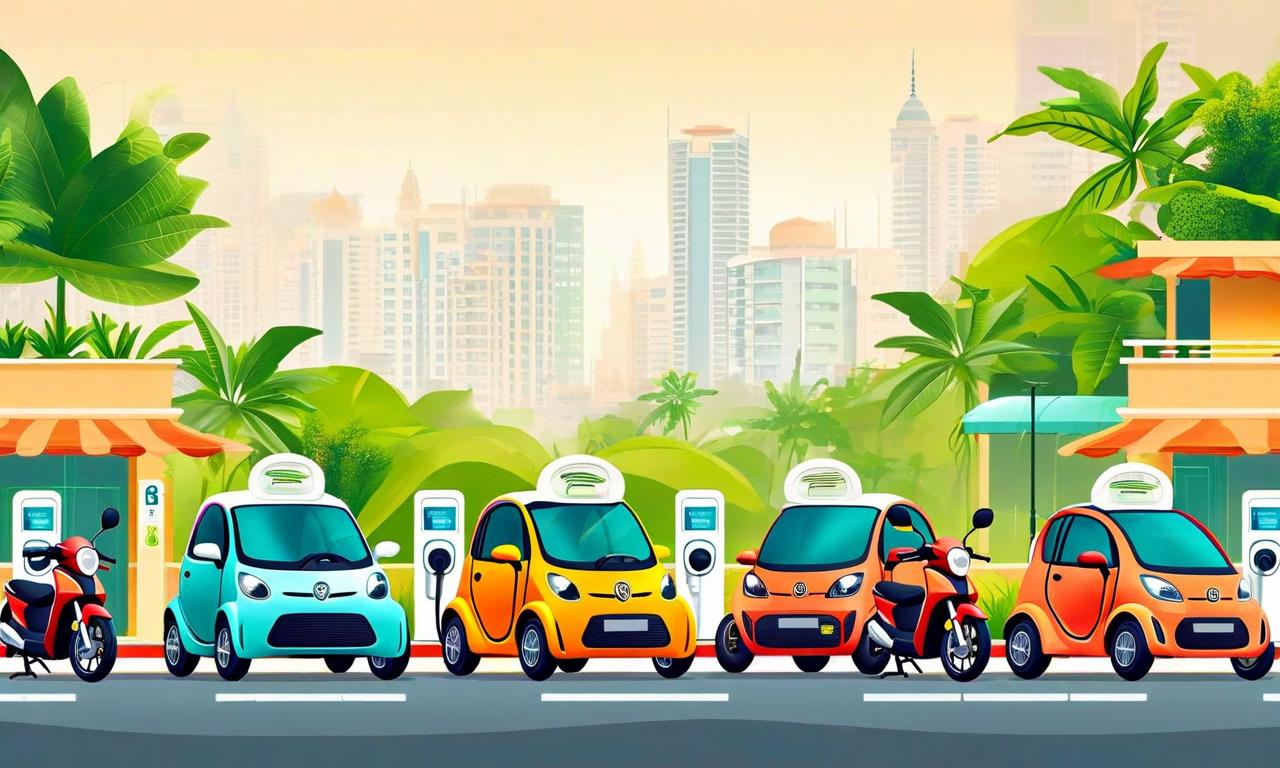India Sets Sights on Global Emission Standards, Boosting Automotive Sector's Green Credentials
India's Road Transport Minister announced plans to align the country's automotive industry with global emission standards, including Euro 7 norms. This move aims to reduce vehicular pollution and improve air quality. The initiative will require significant changes in vehicle design, manufacturing processes, and technology adoption. The government is also emphasizing improved fuel efficiency. This shift is expected to drive innovation, potentially accelerate adoption of cleaner technologies, and enhance the competitiveness of Indian-made vehicles in international markets.

*this image is generated using AI for illustrative purposes only.
India's automotive industry is gearing up for a significant shift as the country's Road Transport Minister announces plans to align with global emission standards, including the stringent Euro 7 norms. This move underscores India's commitment to reducing vehicular pollution and improving air quality across the nation.
Embracing Global Standards
The Road Transport Minister's announcement marks a pivotal moment for India's automotive sector. By aligning with global emission standards such as Euro 7, India is positioning itself at the forefront of the fight against climate change and air pollution. This alignment will likely necessitate substantial changes in vehicle design, manufacturing processes, and technology adoption across the automotive industry.
Focus on Fuel Efficiency
Alongside the push for stricter emission norms, the government is also emphasizing the importance of improving fuel efficiency. This dual focus is expected to drive innovation in the automotive sector, encouraging manufacturers to develop more environmentally friendly and economical vehicles.
Implications for the Automotive Industry
The move towards global emission standards is expected to have far-reaching effects on India's automotive landscape:
- Technological Advancements: Automakers will need to invest heavily in research and development to meet the new standards, potentially accelerating the adoption of cleaner technologies.
- Manufacturing Challenges: The industry may face initial hurdles in adapting production lines and processes to comply with stricter norms.
- Market Dynamics: There could be a shift in consumer preferences towards more fuel-efficient and less polluting vehicles, impacting market trends.
- Export Opportunities: Aligning with global standards could enhance the competitiveness of Indian-made vehicles in international markets.
Environmental and Economic Impact
The government's policy direction is poised to yield significant environmental benefits, potentially leading to improved air quality in urban areas. Economically, while there may be short-term costs associated with the transition, the long-term benefits could include:
- Reduced dependence on fossil fuels
- Lower healthcare costs related to air pollution
- Enhanced global competitiveness for India's automotive sector
Conclusion
India's move to align with global emission standards, including Euro 7, represents a significant step towards a greener automotive future. As the country balances its ambitious economic growth targets with environmental responsibilities, the automotive sector stands at the cusp of a transformative era. This policy shift not only demonstrates India's commitment to global environmental goals but also sets the stage for innovation and sustainability in one of the world's largest automotive markets.



























